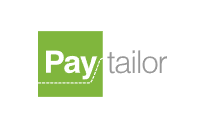The majority of startup owners may face financial challenges in the pursuit of getting their new business off the ground. While most entrepreneurs consider traditional financing options as the ideal source of business financing, small business owners have become increasingly problematic to get funding from banks.
In some cases, your startup may not meet the stringent criteria set by traditional lenders or banks. The strict requirements, lengthy applications, and delayed disbursements of funds may make traditional financing options unfeasible. Luckily, there are several alternative lending options that you can consider to keep your startup’s doors open and running.
It may be more streamlining and seamless to acquire funding via alternative lenders, but there has to be some guarantee that you will repay their investments. Your startup should prove that it has the potential to qualify for any alternative lending.
For instance, positive early traction from your startup, clean financial history, or any collateral to put against the loan will much likely increase your chances for any loan.
So, if your startup is willing to give a shot to alternative lending options, the following are some favorable potential and alternative lending options to charge your startup for success.
6 Alternative Lending Options To Charge Your Startup For Success
1. Crowdfunding Campaigns
If your startup has a solid and robust business idea or business plan appealing to the masses, you can use this goodwill wave to pool small investments from your backers. Crowdfunding enables your startup to raise funds through support from the public, who typically contribute to business financing funds through an online platform.
Crowdfunding is gradually becoming a popular way to raise funds to get your startup through the development phase. In return, you can offer some rewards, such as exclusive experience, to your backers for their contribution. Equity crowdfunding gives those who donate to your startup investment opportunities in exchange for equity or potential prospect returns.
Additionally, crowdfunding will build awareness and publicity for your startup. It’s a perfect alternative lending option for emerging businesses with a solid product in creation. However, there will be pressure to deliver in a short time and a considerable amount of marketing to run an efficient operation.
2. Line Of Credit
A line of credit is a simple and flexible financing option that, upon approval for an overall amount of funds, your startup can withdraw funds at any time it needs working capital. The process functions much like taking a cash advance from a credit card, although a bit complicated.
There is a maximum amount that your startup can acquire. You will only pay the borrowed amount despite the total amount authorized for and any additional fee or interest on top of what you borrow.
A line of credit is helpful for startups with repeated cash flow needs. You can use them to pay suppliers, expand inventory, short-term operating expenses, or cover your cash flow gaps. However, this alternative lending option isn’t favorable when your startup needs to pay for large capital expenditures.
3. Invoice Financing Or Factoring
Invoice financing involves your startup selling its outstanding invoices to a lender at a discounted rate. Your business will have the cash flow it needs to keep running before any slow-paying clients can deliver their balances.
Some startups sell their products or services to commercial clients who settle their invoices in 30 to 90 days. These slow payments can swiftly erode your startup financial reserves while still paying for business-related expenses.
You can approach a factoring company that can provide immediate funds while they hold onto your invoices. Once your clients settle their invoices in full, you can pay the factor according to your agreement.
Also, invoice financing is an efficient way to ensure your startup reduces terrible debt. Factor companies are highly knowledgeable on the credit scores of most commercial clients. They can advise you on whether a potential client can settle their payments on time or not.
4. Merchant Cash Advances ( MCAs)
Also known as business cash advances, MCAs are gaining popularity as a short-term financing tool for many businesses. Like invoice financing, MCAs offer flexible and fast funding for startups than they would typically have access to the funds.
This alternative lending option is not mainly a loan. Typically, a financing company offers your startup a lump sum of funding in exchange for your future credit card sales and some extra fee.
The high rates and expenses associated with MCAs can make this alternative lending option a bit costly. On the other hand, your startup could use the following benefits of business cash advances:
- They are easy to apply. You can apply online by providing your startup’s supporting documents such as business ID and recent bank statements.
- Once your application is authorized, you can have access to your funds in a short time, even within 24 hours.
- Flexible repayment system based on your credit card sales. For instance, when your startup’s sales are low, you pay less and vice versa.
- You don’t require a solid personal and business credit score-only the consistency of your startup’s credit card sales.
5. Asset-Based Loans
In scenarios where your startup intends to acquire assets, you can use these assets as collateral for the loan amount you are securing. Alternatively, you can secure loans based on any assets your startup holds.
The interest rates mainly depend on the inherent value of the particular assets. The interest rates of asset-based loans are usually lower than unsecured loans.
6. Angel Investors
Angel investors not only offer a solid choice in funding your startup but also can offer practical advice and business acumen that can get your venture off the ground to the next big stage. They provide favorable terms compared to other lenders.
It may not be easy to earn the attention of an angel investor. However, if you understand who angel investors are, how they invest, and what they want to know before investing in your startup, it will get you on a good side with them.
In conclusion, the type of lending option that’s perfect for your startup depends on how much money you are looking for, how soon you need the funds, and the time frame to pay the loan. Also, ensure you have a clear comprehension of the terms, rates, and conditions before committing to any alternative lending option to charge your startup for success.












